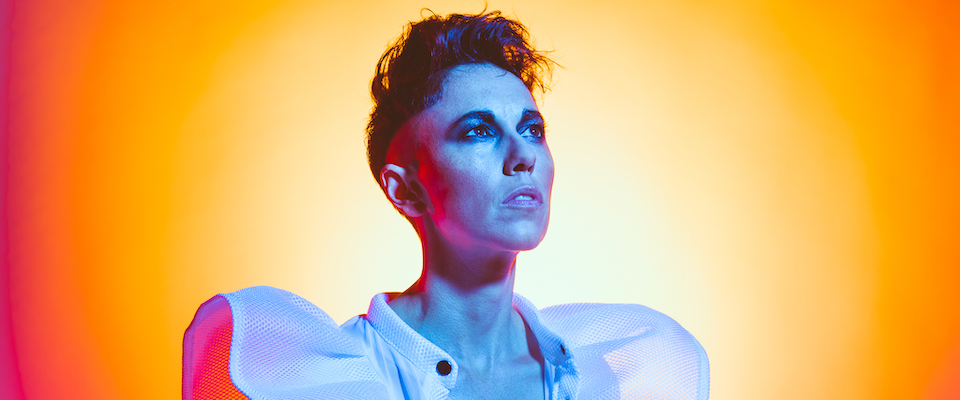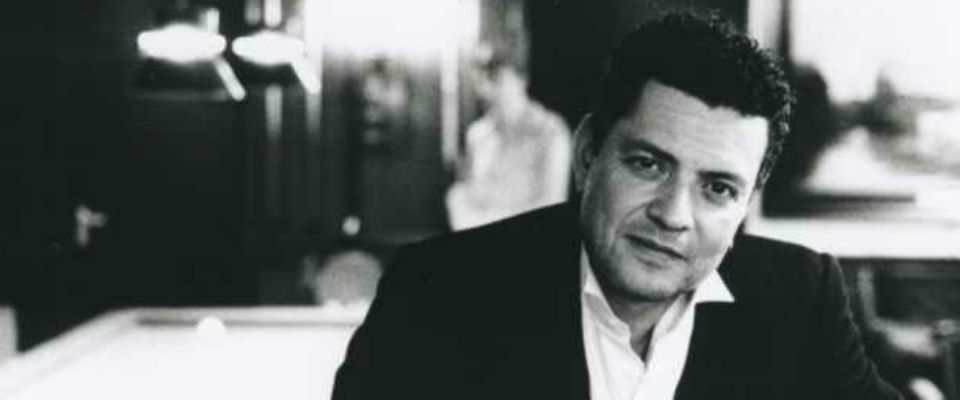By Annie Lyons
Gina Chavez might be having a better 2020 than most of us. Her new all- Spanish language album La Que Manda recently earned a Latin GRAMMY nomination for Best Pop/Rock Album.
She plans to celebrate the night with a socially distanced watch party, red carpet and all.
“I already feel like a winner,” she beams. “Especially being an independent artist, like a truly independent artist, and especially not being like a native hispanohablante and not being somebody that was born in Latin America … like it’s huge! I’m so excited. I feel so honored to have my music be recognized internationally, to be recognized by the Latin music community.”
Catch her performance of the album’s title track this afternoon during the Latin GRAMMY Premiere ceremony, where many of the awards are announced, live starting at 2 p.m. CST on Thursday, Nov. 19 on the Latin GRAMMYs Facebook page. Her award category takes place during the main ceremony in the evening at 7 p.m. CST, airing on Univision. Univision can be streamed on most devices where you watch TV; find more information on how to access it here.
Watch her ethereal performance of “Ella” with Flora & Fawna’s Lili Hickman for our Social Distancing Pop-Up series, and then scroll to the interview below to learn more about Gina and La Que Manda.
NPR LIVE SESSIONS/KUTX – Musicians: Gina Chavez, vocals, guitar; Lilli Hickman; vocals; cameras and edit: Michael Minasi; audio mix: Jake Perlman; producer: Deidre Gott
Self-described multi-ethnic, queer Catholic, Austin’s Gina Chavez sharpens her Spanish language album La Que Manda, or The Woman in Charge, with a new defiant edge and sonic exploration. Inspired in part by her observations on the road, it is a starkly feminist work detailing a woman’s journey to empowerment — both a healing catharsis and a rallying cry. Single “Ella” highlights the resilience of survivors, while “Bienmada” depicts the tender moments that flourish when you feel affirmed: “Tengo melodias para calmarte / Tengo tortillitas pa’ animarte (“I have melodies to calm you / I have tortillas to cheer you up”).
This album’s been a long time coming; some of these songs have been in her back pocket for years.
“Music is our way of telling life as it’s happening. So the whole idea of an album cycle and you know, every two years, every three years putting something out is a little weird because life is always happening.”
As the project progressed, she started to notice a common theme tying songs together.
“It wasn’t like I set out to write like a female empowerment record. That sounds really cheesy! It’s more that I think, for me, I’m in my late thirties, and I am reading things like Glennon Doyle’s Untamed, I’ve been digesting the wisdom of people like Brené Brown, I’ve started to understand. I’m like, wow, the world has told women so many lies, and that’s one thing that is consistent around the world is the experience of girls everywhere. It doesn’t matter what culture they’re in. A little girl who speaks up is a problem. A little girl who speaks up or who makes noise or doesn’t dress the way she should or says things in the wrong way is called names; is told to be quiet; is told to be pretty; pleasing.”

She reveals, “I lived what it was to come to terms with the struggles that I have. Even when I’m trying to write a song and I don’t believe in myself, that’s something that — I mean, it’s universal to humans — but it’s very particular to women. And if you’re in a studio surrounded by a bunch of men who are playing instruments and recording your album, you have to speak up for yourself in a way that is often way more difficult than a man would.”
“So, it’s just like going through life and learning those things and realizing how I swallowed this nonsense for so long. I played nice my whole life. I’ve done things to make sure that people like me and like my ideas and that I don’t turn them off or that I made sure they feel good about every interaction that we have.”
Now, she hopes La Que Manda can be a “power playlist” for other people the way it’s been for her.
“I’m really excited about this album because I’ve lived the fight, la lucha, that I’ve had to bring these songs to life. It’s really the fight to love myself. It’s really the fight to be like, I’m a badass! I am la que manda, even when I don’t believe it — especially when I don’t believe it.”
Chavez has recorded in Spanish before, like her bilingual 2014 album Up.Rooted, but La Que Manda marks her first all-Spanish language release. It’s a milestone she’s always wanted.
“I’ve always loved the Spanish language. I love this phrase in Spanish: Me llama la atención, and it’s like something that calls your attention. Ever since I was a kid, I have always loved the parts of my heritage that I said I didn’t grow up with.”
She grew up hearing wild stories from her parents who had traveled around Europe for a year and a half in the ‘70s in a VW bus. “Like true hippies,” she laughs. “I grew up around those ideas of like, there’s a bigger world out there, but then I also grew up in the exact same house in Austin that my parents still live in today.” So, she started traveling as soon as she could and learning about other cultures and languages.
Because she’s not a native speaker though, writing La Que Manda posed new challenges. “It’s hard to write a song in English, which is my native tongue, but it’s even harder when you don’t necessarily have a mastery of the language and can play with language,” she explains. “At the same time, I think that I’ve learned the value of collaborating. Like “Ella,” for instance, I think we have five songwriters on that song, and that was a new process for me.”
Chavez worked with a slew of top names for the record: 16-time Grammy winner Thom Russo (Juanes, Alejandro Sanz, Enrique Iglesias), two-time Grammy-winning engineer Fernando Lodeiro (Esperanza Spalding), Grammy award-winning musician/producer Adrian Quesada of Austin’s Black Pumas, and two-time Latin Grammy winner Linda Briceno, who made history in 2018 as the first woman ever to win Producer of the Year.
She had met Briceno a few years ago at an event, so when she started thinking about the album, Briceno naturally came to mind.
“I’ve kind of been following her career ever since I got to meet her. Of course, I was super freaked out. I had the song “Ella,” and I sent it to her, and, of course, I was thinking like, ‘Ooh, she’s not going to like it.’ But she came back, and she was like, ‘Gina, I think this is very special, I’d love to work with you. Why don’t we fly you out to New York?’”
Chavez worked with Briceno and Lodeiro. Briceno brought in a whole crew of musicians, including NYC-based Puerto Rican songwriter Andrea Corona, who also co-wrote the title track after she and Chavez hit it off.
“It was amazing to have some really badass females to pull into the mix. I think it’s unfortunate, but sometimes you have to dig a little bit, especially for producers, like Linda Briceno. They are out there, but it’s hard, you know, especially in Austin. Gosh, think about it. There’s producers everywhere, and I don’t know that I can think of one female. I’m sure there are, but it’s so frustrating that it feels so hard. I think working with somebody like Linda obviously brings not only like who she is, but her story and the talent.”

And in case you were wondering about the larger-than-life, statement leotard she’s sporting on the La Que Manda cover?
“I searched all over the internet to find that thing! ‘Cause I was like, what do you search for? Like… puffy sleeves?” She laughs. “I wanted a piece of clothing that was a little more dramatic, has some structure to it.”
“I also learned during the photo shoot for this album that I love shoulder pads. Like I’m a child of the ‘80s, and I never understood ‘80s fashion. And now it’s like, ‘Oh my God!’ Because I’m also a very small person, and so it’s like when you put on an outfit that has shoulder pads on it, and you suddenly have structure and you look like you take up more space, you feel powerful.”
Taking up space. That sounds perfectly aligned with her mentality behind La Que Manda.
“When you allow yourself to really shine, what you’re doing is you’re allowing other people to shine, and that’s kind of the idea of La Que Manda. When we make ourselves small, we do nothing for the world because we’re not doing anything for ourselves.”



